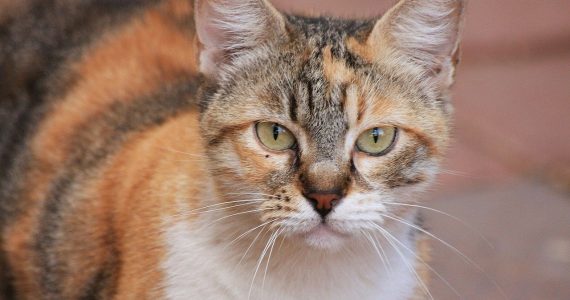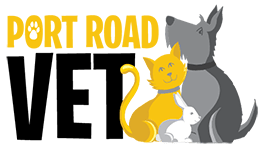Arthritis
What is Osteoarthritis?
Osteoarthritis is a common disease affecting 20% of adult dogs and 80% of geriatric dogs. Even young dogs can be affected, if a predisposing condition is present. It also affects geriatric cats and rabbits. Osteoarthritis is a chronic, progressive disease. It causes stiffness and pain. The cartilage that lines and cushions the joints becomes eroded. This exposes the bone ends, leading to painful bone spurs. The joint lining also becomes inflamed and thickened, reducing mobility.
There are multiple factors which contribute osteoarthritis, including:
- Joint conditions – elbow dysplasia, hip dysplasia, patellar luxation or cruciate disease
- Obesity/being overweight – puts extra stress on the joints
- Breed – larger dog breeds (Labradors, German shepherds, Retrievers, Giant breeds) are more likely to develop Osteoarthritis, however smaller breeds are not exempt
- Previous injury – fractures, cruciate rupture/instability

Common symptoms of osteoarthritis in dogs
- Lameness
- Reluctance to jump onto furniture/into the car
- Slow to get up after lying down
- Stiffness after exercise
- Avoiding the stairs
- “Slowing down” – less willing to go for walks or play
- Change in personality – becoming grumpy or irritable

Symptoms of osteoarthritis in cats may be more subtle
- Urinating or defaecating out of the litter box
- Reduced grooming leading to an unkempt coat
- Reduced appetite
- Jumping to lower heights or reluctance to jump up/down from heights
The signs may be especially noticeable in colder weather.
How to manage osteoarthritis
As osteoarthritis is a chronic, progressive condition there is no cure. However we have a range of options to manage the disease and keep the pet as comfortable as possible. This involves using a combination of treatment options:
- Weight management: this is the mainstay of osteoarthritis management. We want the pet to be in a lean, healthy body condition to avoid putting extra stress on the joints. If the pet is overweight/obese then getting it onto a weight loss plan is essential.
- Exercise management: exercise will help maintain the muscles which will in turn support the joints. Regular, low impact exercise is recommended. Uncontrolled exercise (running, jumping, twisting when chasing balls or on the beach) will put extra strain on the joints. Another beneficial exercise is swimming – this is non-weight bearing and provides resistance which encourages muscle development without putting extra stress on the joints.
- Therapeutic diets: Hills J/d or Metabolic + Mobility (if weight loss is needed) are both designed to help arthritis. They have a specific combination of essential fatty acids which helps to reduce pain and inflammation in the joints and support the cartilage.
- Zydax (pentosan polysulphate) injections: this a course of injections weekly for 4 weeks, every 6 months. Zydax reduces inflammation of the joint and helps to protect the cartilage from further damage. It is very safe and is often started in younger dogs with hip or elbow dysplasia or after surgery to help prevent early onset of arthritis.
- Nonsteroidal anti-inflammatories (NSAIDs): These are medications which help to relieve pain and inflammation in the joints. A blood test is recommended prior to starting this medication as long-term use can cause liver and kidney problems.
- Gabapentin (Neurontin): This is another pain relief medication which acts in a different manner to NSAIDs. It is good for chronic pain and is safer for long term use in terms of liver and kidney function.
- Nutraceuticals: examples include fish oil, chondroitin and glucosamine supplements. They may help to reduce inflammation of and protect the joints. They can be given long term to help with management.
- Surgery: surgical correction of conditions like patellar luxation and cruciate disease will help to delay the onset of arthritis by creating a more stable joint. Elbow dysplasia and hip dysplasia may also need surgery depending on the severity.
If your pet is experiencing any of the symptoms of osteoarthritis above, then please book in with us to get a management plan organised to make your pet more comfortable.
Call 08 8340 0388 or book online to arrange an appointment to talk to one of our friendly vets about the best options for your pet.
